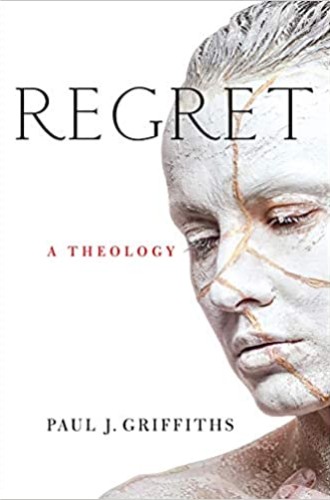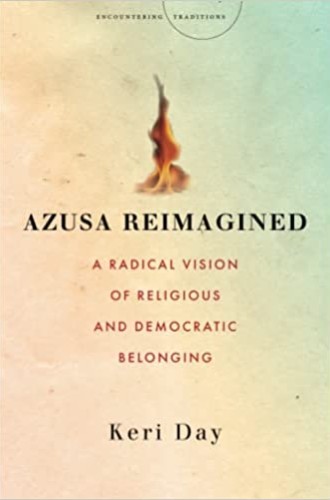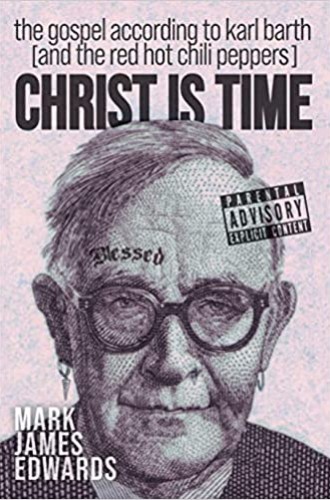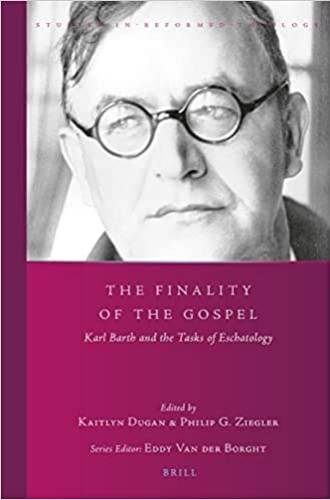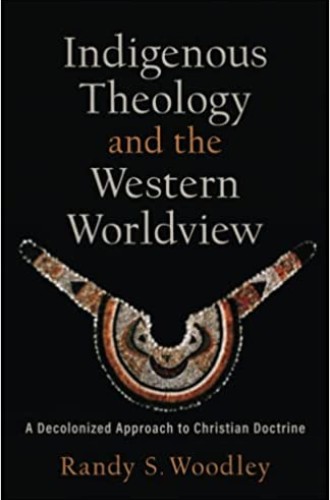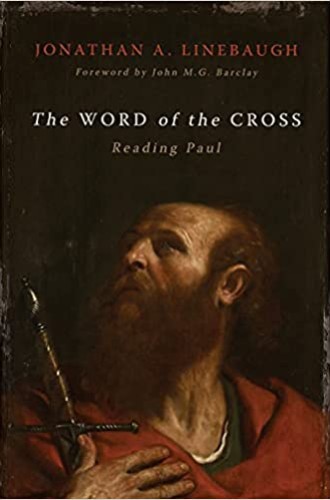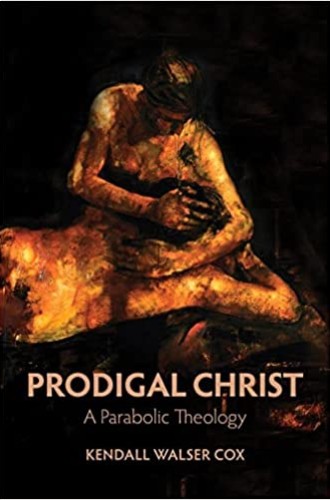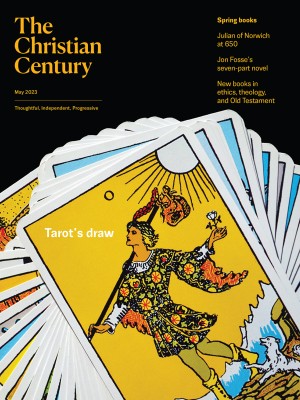By Paul J. Griffiths
University of Notre Dame Press
The General Social Survey, a large-scale study that has surveyed American attitudes and feelings for 50 years, has noted a sharp decline in the well-being of both adults and adolescents. A steep drop starts in the survey around 2012 and is especially pronounced among teenagers. This decrease in happiness stands in inverse proportion to the rise in depression, suicide, self-harm, addiction, and alcohol-related liver disease—all instances of a new term in our smartphone, social media, lockdown era: deaths of despair. Regret, wishing that an aspect of life was otherwise, is one of the feelings occasioned by a life lived in front of a screen. Paul Griffiths’s slim but painstaking book examines the specific contours of this timeless struggle. Avoiding the simple distinction between shame and guilt, Griffiths thinks theologically about regret in a manner that gestures toward Easter. He shows how regret can be the first tool in a technology of the heart, one that works repentance. In this way, he identifies how the feeling with which many now wrestle is, in fact, necessary for their being made whole by the gospel.
Azusa Reimagined: A Radical Vision of Religious and Democratic Belonging
By Keri Day
Stanford University Press
If despair increasingly marks our individual lives, collectively we struggle to face the fraying of democracy as we reckon with the systemic sins at its foundation. In Azusa Reimagined, Keri Day shows how the founding of the Pentecostal movement provides a critique that can function as a corrective to the present moment. Day ranges ably from theological investigation to historical analysis to critical theory, studying sermons and ritual practices to present the 1906 Azusa Street Revival as a rejection of the racial capitalism of White America at the advent of the 20th century. In addition, Day argues, Pentecostalism emerged with a notion of democratic community that served as an alternative, if not an antidote, to the individualism and loneliness at the heart of capitalist culture. Azusa Reimagined is helpful on multiple levels: not only does it offer new insight into the origins of what has become the largest Christian movement in the world, it displays a deft use of critical theory, a mode of analysis that has recently become a shibboleth in the culture wars.
Read our latest issue or browse back issues.
Christ Is Time: The Gospel According to Karl Barth (and the Red Hot Chili Peppers)
By Mark James Edwards
Cascade
Mark James Edwards provides a provocative and—wait for it—fun example of how theology can be faithful to the tradition yet idiosyncratic, deeply serious without sacrificing the winsomeness that should accompany any account of the Jesus who has the salvation of the world already in the bag. The fruit of a systematic theology course Edwards co-taught with Bruce McCormack at Princeton Theological Seminary, Christ Is Time works through the dogmatic themes that every systematic theology syllabus features. In the process, Edwards makes plain how Karl Barth provides a salutary correction to many of the impasses and problems of the theology which preceded him. What’s more, Edwards pulls off the seemingly impossible task of putting Barth’s allegedly impenetrable Dogmatics into conversation with pop culture in the context of current events that cry out for a prophetic voice. That a young scholar like Edwards was free to do theology so playfully alongside an impressive practitioner like McCormack provides a helpful lesson to preachers who long to do theology in dialogue with—but not intimidated by—the expertise of their predecessors.
The Finality of the Gospel: Karl Barth and the Tasks of Eschatology
Edited by Kaitlyn Dugan and Philip G. Ziegler
Brill
Another fine contribution that mines the riches of Barth’s relevance for contemporary theology, The Finality of the Gospel features exemplary essays from top scholars in the field. One of the challenges that faces both preachers and lay leaders is the specialized—and thus siloed—nature of disciplines like theology and biblical studies. That Barth neither earned a PhD nor respected such silos in his work may be one reason for his abiding usefulness to the church. Kaitlyn Dugan and Philip Ziegler provide a helpful interdisciplinary corrective to this siloed reality, bringing together the work of both systematic theologians and Pauline scholars as they explore Barth’s exegesis and theology. If we presently live in a time marked by despair, The Finality of the Gospel shows how Barth’s eschatology might help us point in hope to Christ, who is the Lord of time.
Indigenous Theology and the Western Worldview: A Decolonized Approach to Christian Doctrine
By Randy S. Woodley
Baker Academic
Implicit in Christian eschatology is the confession that we have returned God’s original favor and made the world in our sinful image. Much of theology (like much of our world) stands in need of redemptive rethinking. Even the format of Randy Woodley’s latest book challenges Western presumptions about what should characterize a comprehensive work of theology. Indigenous Theology and the Western Worldview is a conversational text that employs question and answer sections, narrative storytelling, and passionate exhortation. For instance, in his initial chapter Woodley digresses from his critique of the notion of civilizational progress to narrate an Indigenous story, the Cherokee tale of Grandmother Turtle. The choices Woodley makes in the course of this book result in theology that haunts as it moves through its readers. We are left with the realization that we need to decolonize the assumption that faithful theology doesn’t need to have an emotional impact.
The Word of the Cross: Reading Paul
By Jonathan A. Linebaugh
Eerdmans
If the purpose of theology is to test the fidelity of the church’s proclamation, then preachers will always need fresh, insightful treatments of Paul’s correspondence. The Word of the Cross offers this in spades, probing Paul’s texts and thought while citing disparate material that ranges from Thomas Cranmer and Martin Luther to Walker Percy and Marty McFly. As this collection of essays progresses, Jonathan Linebaugh traces the dominant themes of Paul’s message and then examines how this message shapes the Protestantism that Luther and Cranmer bequeathed the world. For Linebaugh, what is abidingly necessary about Paul is “the pattern of grace” in his writings—the grammar of the gospel which emerges at the point where honest diagnosis of ourselves collides with and is overcome by the hope of mercy. Linebaugh’s shorthand term for the gospel could also serve as the dust jacket description of his book: it’s a “merciful surprise.”
Prodigal Christ: A Parabolic Theology
By Kendall Walser Cox
Baylor University Press
As timeless as Paul’s word of the cross, Jesus’ parable of the prodigal father with two lost sons (Luke 15:11–32) persists as an inexhaustible portrait of God’s unbroken love for wayward and foolhardy humanity. The parable’s finale endures as perhaps the most faithful statement we can venture about the nature of a final judgment, namely, in the end, perhaps only in our outrage over God’s grace can we damn ourselves. In Prodigal Christ, a robust work of academic theology, Kendall Cox puts this parable into conversation with two seemingly unlikely interlocutors, Karl Barth and Julian of Norwich. She examines it not only as a parable of salvation but also as a parable of atonement and election—and therefore a parable of the divine life and a portrait of the prodigal Jesus who is excessively and liberally giving of himself. Through this fruitful pairing of conversation partners, Cox makes a familiar parable newly strange and redemptive.


